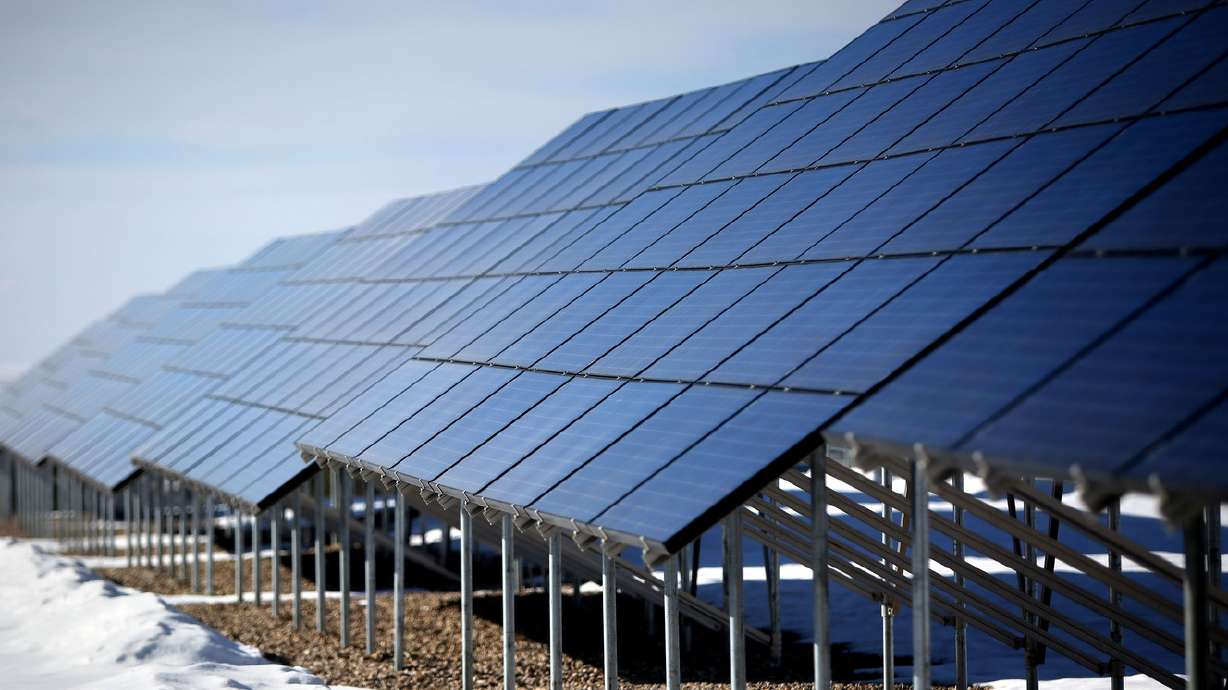Estimated read time: 2-3 minutes
This archived news story is available only for your personal, non-commercial use. Information in the story may be outdated or superseded by additional information. Reading or replaying the story in its archived form does not constitute a republication of the story.
OGDEN, Utah (AP) — New rooftop solar installations are down 23 percent after Utah's main power company reached a deal to pay customers less for the power they generate.
Rocky Mountain Power in a deal that went into effect in November phased out the net-metering program, which paid solar customers the market rate for their excess energy sent to the grid, the Standard-Examiner reported this week.
New solar customers are in a transitional program that pays slightly less than market rates, which will last until 2033. The customers who installed solar panels before November are grandfathered at the previous rates until 2035.
Nearly 9,400 customers installed new solar arrays from 2017-18, according to the utility's most recent net-metering report. About 12,400 new rooftop solar installations were reported in 2016. The utility has more than 30,000 solar customers in total.
"The low-hanging fruit is already taken," said Ryan Evans of the Utah Solar Energy Association. "Those people interested in solar, if they'd been looking, they went for it in 2016" before net-metering phased out.
Rocky Mountain Power sought the rate change, arguing that net metering passed costs on to non-solar customers. The utility reached a deal with groups like Utah Clean Energy and the Utah Office of Consumer Services to change the rates.
Solar customers grandfathered into the net-metering program or in the transitional program have a year to use credits to offset their bills. If customers generate more solar credits than what they require to power their homes, the credits will be forfeited.
"It's in part to make sure net-metering customers aren't over-designing their system," said Kate Bowman of Utah Clean Energy. "If your system is designed correctly to meet 100 percent or less of your energy needs, you won't have expired credits."
Copyright © The Associated Press. All rights reserved. This material may not be published, broadcast, rewritten or redistributed.









